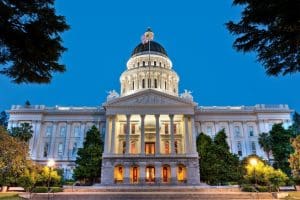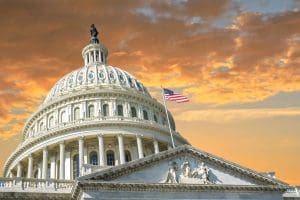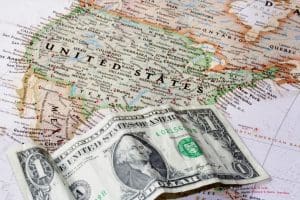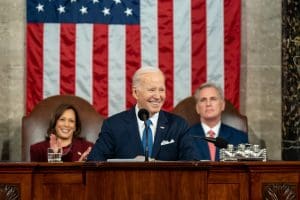The economic crisis caused by the coronavirus pandemic poses a triple challenge for tax policy in the United States. Lawmakers are tasked with crafting a policy response that will accelerate the economic recovery, reduce the mounting deficit, and protect the most vulnerable.
To assist lawmakers in navigating the challenge, and to help the American public understand the tax changes being proposed, the Tax Foundation’s Center for Federal Tax Policy modeled how 70 potential changes to the tax code would affect the U.S. economy, distribution of the tax burden, and federal revenue.
In tax policy there is an ever-present trade-off among how much revenue a tax will raise, who bears the burden of a tax, and what impact a tax will have on economic growth. Armed with the information in our new book, Options for Reforming America’s Tax Code 2.0, policymakers can debate the relative merits and trade-offs of each option to improve the tax code in a post-pandemic world.

The EU’s Windfall Profits Tax: How “Tax Fairness” Continues to Get in the Way of Energy Security
When it comes to providing economic relief to those in need, wartime energy security, and principled tax policy, the EU can do all three. But a windfall profits tax is not the policy to achieve these goals.
8 min read
California Flavored Tobacco Ban May Cost More than $300 Million in First Year
California is losing tax revenue while consumers turn to cross-border purchases or, often, illicit trade of flavored cigarettes, which makes everyone worse off.
4 min read
Tennessee Looking Toward Pro-Growth Change in 2023
With other states upping their game to attract ever-more-mobile people and businesses, lawmakers and the governor are not content to leave Tennessee’s business taxes in their current, uncompetitive form.
7 min read
Deteriorating Federal Budget to Run $1.4 Trillion Deficit in 2023, CBO Projects
Immediately balancing the $20 trillion budget shortfall would take drastic, unwanted policy changes. Instead, lawmakers should target a more achievable goal, such as stabilizing debt and deficits with an eye toward comprehensive tax reform that can produce sufficient revenue with minimal economic harm.
4 min read
Efforts to Combat Inflation’s Impact on the Tax Code Should Remain a Priority in 2023
While hoping for inflation’s continued decline, policymakers should finish the job and index the tax code to prepare for future bouts of high inflation and as a contingency in case it takes longer to defeat elevated inflation than expected.
4 min read
New York, Oregon, and Other States Eye Much Higher Taxes on High Earners
Despite robust revenues, some state lawmakers are champing at the bit to raise taxes on higher-income households, sometimes to extraordinary levels.
7 min read
JCT Tax Expenditure Report: Not All Expenditures Are Created Equal
When peeling back layers of the JCT report, it becomes clear that many tax expenditures are not “loopholes” or benefits for narrow special interests, but important structural elements of the tax code.
6 min read
Will the Federal Government Tax Your State Tax Rebate?
If your state issued tax rebates last year, you might have to pay federal income tax on the rebate you received. Maybe. Who knows? Unfortunately, not the IRS—at least not yet.
5 min read
Tax Policy in Biden’s 2023 State of the Union Address
President Biden’s State of the Union Address outlined three tax proposals, including raising the tax on stock buybacks, imposing a billionaire minimum tax, and expanding the child tax credit.
6 min read
New Tax Expenditures Report Highlights Concerning Changes in Tax System
A new tax expenditures report by the Joint Committee on Taxation (JCT) reveals two problematic developments: 1) policymakers have increasingly relied on the tax code to deliver benefits to individuals, and 2) the broad, neutral tax treatment of investment has shifted to targeted subsidies for businesses.
4 min read